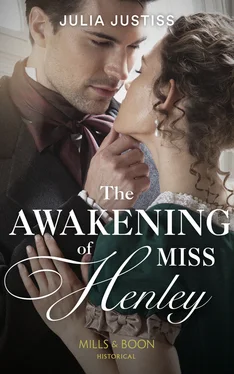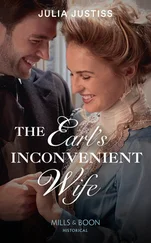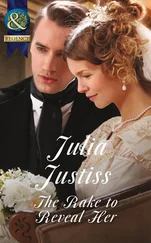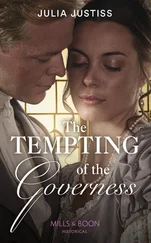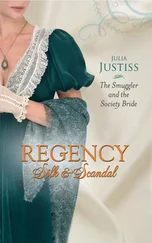Being able to write a few strongly worded appeals to various Members of Parliament decrying the continuing miseries of child labour should be just the thing to put today’s events in perspective and calm her for the coming showdown with her mother.

A little more than an hour later, Emma arrived at Berkeley Square and took a table inside Gunter’s, where she awaited the arrival of the two people dearest to her in the world: Olivia Overton and Sara Standish.
Olivia was first to arrive. Smiling as she waved over to her table the tall, angular girl who had a long, plain face and dull brown hair just as she did, Emma felt again the surge of gladness that Olivia had taken the lead and turned three shy outsiders at Mrs Axminster’s Academy for Young Ladies into the dearest of friends.
Inviting them to share her table for dinner one night, Olivia had observed that Emma and Sara also seemed to enjoy books and seemed as uninterested as she was in the conversations about Seasons and husband-hunting that occupied most of their classmates. She then suggested that the three of them would have a better chance of surviving the miseries of school if they banded together.
They soon become inseparable. After discovering the feminist writings of Mary Wollstonecraft and the calls for democracy and social reform of Thomas Paine, they’d decided that, for them, the future would involve working for noble causes, rather than competing for suitors or devoting themselves to securing—and measuring their worth by—the brilliance of the marriage proposals they received.
She and Olivia had just exchanged hugs and greetings when Sara Standish walked in, her plump face wreathed in a smile that magnified the sweetness of her expression. Petite, blonde and curvaceous, she provided a sharp contrast to her friends’ tall angularity.
As Emma settled in beside them at the table, the doubt and turmoil in her heart eased. With her friends to stand by her, she knew she could face anything.
‘I’m so glad you could come on such short notice,’ Emma told them after they’d given the waiter their order. ‘I was afraid you might both be occupied with calls this afternoon.’
‘Your note did take me away from perusal of a quite fascinating book,’ Olivia said.
‘I bargained with my aunt that, if I agreed to attend without protest whatever society events she chooses, I would only have to make calls with her twice a week,’ Sara said. ‘Luckily, today was not one of the designated calling afternoons. But what has transpired that you needed to summon us so precipitously?’
In a few terse sentences, Emma told them about Nullford’s proposal, her refusal and the scene with her maid that had sent her scurrying from the house before it could be repeated, in more ominous tones, with her mama. Though she mentioned in passing her ride in the park, she omitted describing her encounter with Lord Theo.
Not that her friends would tease her about him, or press for more details of the meeting than she chose to relate. In truth, she was a bit embarrassed to find herself so attracted to a man who was exactly the sort of too-handsome, too-charming, too-faithless and too-purposeless gentleman she’s always scorned.
Even thinking about Lord Theo made Emma feel edgy and unsettled. So she would just stop thinking about him, she told herself.
‘You escaped before your mama could take you to task for refusing Mr Nullford?’ Olivia asked, pulling Emma from her thoughts.
‘Yes. I scuttled off to Hatchards, where I bought some paper and was kindly lent a pen and some space on their counter to write my notes.’
‘But given that the suitor was Nullford ,’ Sara said, ‘are you so sure your mama will be disappointed?’
‘Since she put him up to it, yes. After the episode with my maid, I couldn’t bear the prospect of sitting still while she scolded me for my foolishness, then wondered for the millionth time why I fail to see the necessity of marrying so apparent to every other female, and then worked herself into a deep despondency, worrying over what will become of me. I hope later to use this incident to persuade her to finally accept that my vision for my future is quite different from hers and get her to agree to release me from the social obligations of the Season. But I’ve no hope of doing so before we go through the ritual of outrage, puzzlement and despair.’
‘At least you know she does care about you—even if she cannot understand you,’ Sara said.
Olivia reached over to press their friend’s hand. After her daughter’s birth, Sara’s mama had taken to her sofa, claiming her health prevented her taking any further part in society. There, she received calls from select gossipy friends and the various physicians and apothecaries summoned to treat her latest ailment, while delegating all responsibility for managing her daughter’s future to her sister, Sara’s aunt, Lady Patterson.
‘Yes, and I do appreciate that she’s sincerely concerned about me,’ Emma replied, ‘which is why I have so far tolerated yet another Season, when I would much prefer to be done with it and set up my own establishment. Oh, to be able to come and go when and where I please, without dragging along a maid or a footman!’
‘I know,’ Olivia said, sighing as well. ‘Though we are all more than one-and-twenty and could legally access the funds to establish the household together we planned at school, it’s turned out to be not nearly as easy as we envisaged. Merely mentioning the possibility of our hiring a house is enough to set Mama off in a swoon.’
‘Even we must recognise that our families will suffer a good deal of scorn and pity for producing daughters with such odd, unfeminine aims,’ Sara said. ‘I’m sure your mama genuinely believes that choosing not to marry and giving up your place in society would mean not just censure for her, but ruin and heartache for you, too.’
‘Another point on which Mama harps,’ Emma agreed. And one Mr Nullford had stressed. ‘Sadly, none of us can escape the burden of appreciating our families’ sensibilities, no matter how much their expectations conflict with our own wishes.’
‘I have no intention of “appreciating” my family’s sensibilities to the point of marrying, just to spare them distress,’ Olivia replied acidly. ‘Bound to a husband for whom I feel at best a tepid respect? Ending up a wife either neglected in favour of prettier, mindless females like the ones we knew at school, or scorned for having the temerity to display my intelligence and work towards political goals? Never!’
‘I’m not suggesting we give in to society’s pressure and marry,’ Emma replied. ‘Only that withdrawing from society to live and work together, as we envisaged at Mrs Axminster’s, will have to be deferred a while longer.’
‘How much longer?’ Olivia asked, frustration in her tone. ‘Until all family members likely to be embarrassed by us have passed on?’
‘Certainly not that long!’ Emma said, giving her friend a rueful smile. ‘I remain hopeful that I may escape by the end of the Season, perhaps even before. Especially after the contretemps over Mr Nullford, which Mama is sure to bewail as perhaps my last chance to wed.’
Inwardly wincing again, she refrained from disclosing Mr Nullford’s hurtful remark about her desirability.
‘Nullford!’ Olivia said scornfully, shaking her head. ‘Only a female who believes any husband is better than none could seriously consider wedding that blockhead. And for someone as intelligent and perceptive as you to marry such a man…it would be a travesty!’
Читать дальше
